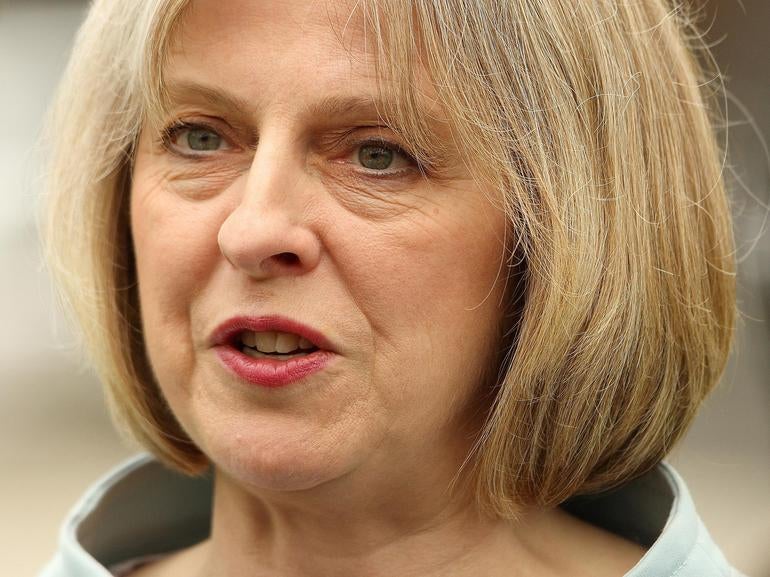
Home Secretary Theresa May said today the use of controversial counter-terrorism stop and search powers will be subjected to stricter conditions.
Police will not be allowed to use the powers to stop and search individuals unless they “reasonably suspect” them of being a terrorist, she said.
Stop-and-search has regularly been used against photographers and journalists as they conduct their legitimate right to report events.
The change follows a European Court of Human Rights judgment last month which ruled the power to search people without suspicion under Section 44 of the Terrorism Act 2000 was illegal.
May told the Commons: “The first duty of Government is to protect the public but that duty must never be used as a reason to ride roughshod over our civil liberties.”
She told MPs the Strasbourg judgment found that the use of Section 44 amounted to “the violation of the right to a private life”.
The court found the powers were “drawn too broadly at the time of their initial authorisation and when they are used” and lacked sufficient safeguards to protect civil liberties.
May added: “The Government cannot appeal this judgment, although we would not have done so had we been able.
“We have always been clear in our concerns about these powers and they will be included as part of our review of counter-terrorism legislation.
“I can therefore tell the House that I will not allow the continued use of Section 44 in contravention of the European Court’s ruling and, more importantly, in contravention of our civil liberties.”
Setting interim proposals ahead of the completion of the Government’s full review of counter-terror laws, May said she would not leave police “without the powers they need to protect us”.
The Government had taken legal advice and consulted police forces May said, adding that the authorisation to use Section 44 powers would only be granted if their use was “necessary” for the prevention of terrorism rather than “expedient”.
“Most importantly, I am introducing a new suspicion threshold,” she said.
“Officers will no longer be able to search individuals using Section 44 powers; instead they will have to rely on Section 43 powers which require officers to reasonably suspect the person to be a terrorist.
“Officers will only be able to use Section 44 in relation to the search of vehicles.
“I will only confirm these authorisations where they are considered to be necessary and officers will only be able to use them when they have reasonable suspicion.”
The European Court of Human Rights ruling came in a case brought by two Londoners who were stopped and questioned by police near an arms fair in the city in 2003.
Kevin Gillan and Pennie Quinton were stopped and searched on the same day in the area of a Defence Systems and Equipment International Exhibition at the Excel Centre in Docklands, where there had already been protests and demonstrations.
Nothing incriminating was found on either of them and they went to court questioning the legality of stop and search powers.
The High Court and the Court of Appeal said such powers were legitimate, given the risk of terrorism in London, but the Human Rights court disagreed.
Shadow home secretary Alan Johnson said the Strasbourg court’s judgment was based on the way the powers were used “some years ago” and the Labour government and police authorities had “reviewed and improved” procedures since then.
“The number of stop and searches under Section 44 has reduced considerably over the last two years,” he said.
Email pged@pressgazette.co.uk to point out mistakes, provide story tips or send in a letter for publication on our "Letters Page" blog
